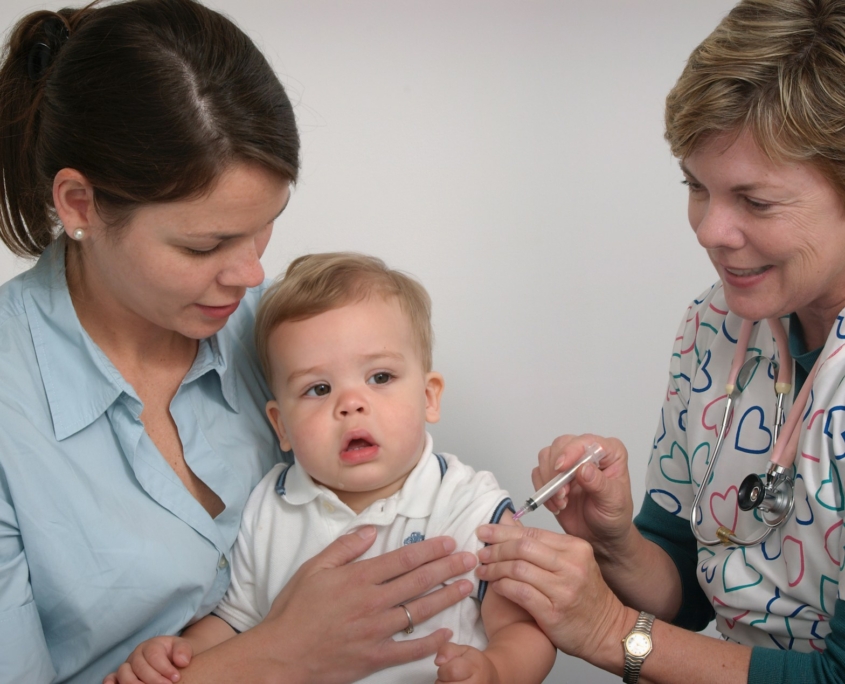Spain Leads Infant Health Breakthrough Against RSV Infections
 Spain has emerged as a global leader in protecting infants from respiratory syncytial virus (RSV), launching a successful immunization campaign that dramatically reduced hospitalizations and intensive care admissions. According to Salut, the campaign cut ICU admissions by 90% and hospitalizations by 87%, while the overall number of RSV infections dropped by 68.9%.
Spain has emerged as a global leader in protecting infants from respiratory syncytial virus (RSV), launching a successful immunization campaign that dramatically reduced hospitalizations and intensive care admissions. According to Salut, the campaign cut ICU admissions by 90% and hospitalizations by 87%, while the overall number of RSV infections dropped by 68.9%.
In 2022, the European Union (EU) authorized the use of nirsevimab, the first monoclonal antibody (mAb) designed to prevent lower respiratory tract infections caused by RSV in newborns and infants during their first exposure to the virus. Carlos Rodrigo, clinical director of pediatrics at Germans Trias I Pujol Hospital in Badalona, praised the campaign’s acceptance rate. “The population’s acceptance rate was very high, as shown by the 87.7% coverage in Catalonia,” Rodrigo said. “If not surpassed, the expectations have been completely fulfilled.” Children under 6 months of age carry the highest risk and economic burden from RSV infections in Spain, making early prevention efforts especially critical.
Understanding RSV and Its Global Impact
RSV stands as one of the most common childhood infections and ranks as a leading cause of hospitalization in children under 5. Most children contract the virus by the age of 2. For infants and toddlers, RSV can cause serious symptoms, including breathing difficulties, low oxygen levels and dehydration. The virus plays a major role in global morbidity and mortality among children by driving epidemics of acute lower respiratory tract infections (RTIs). Recognizing this impact, Spain introduced its monoclonal antibody as a proactive measure to prevent severe RSV infections in infants and reduce strain on health care systems.
How Spain’s Monoclonal Antibody Strategy Works
Unlike vaccines that train the immune system over time, monoclonal antibodies like nirsevimab deliver immediate protection. This quality makes them especially useful during an infant’s first RSV season, when timely immunity matters most. Rodrigo emphasized the breakthrough: “The success of the measure is so evident that this year many other countries—such as the United States (U.S.), the United Kingdom (U.K.), Germany and Italy—will surely adopt it. The antibody is very well tolerated and the results are among the most spectacular ever seen in medicine.” He likened Spain’s RSV antibody rollout to historic breakthroughs such as penicillin or the polio vaccine. “It’s a huge, spectacular success,” he added, “a saving of suffering for parents and babies and of very high costs for the health care system.”
Building a Blueprint for Global Infant Health
Spain’s RSV prevention campaign offers valuable lessons for health policymakers worldwide. To replicate its success, health systems may need to plan proactively, ensure supply chains and implement targeted infant immunization strategies. Monoclonal antibodies may become key tools for protecting vulnerable populations, not only in Spain but worldwide. By prioritizing infant health and embracing innovative tools, Spain has made a significant leap forward in health care. Its model shows that with foresight and coordination, countries could reduce hospitalizations, protect children and ease the financial strain on health care systems.
– Abirame Shanthakumar
Abirame is based in Ontario, Canada and focuses on Global Health for The Borgen Project.
Photo: Unsplash
